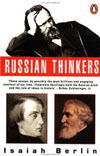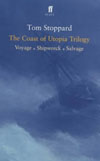 An article in last Sunday’s NYT got me thinking about how book sales can be affected by media, in quite different ways than music, or even movies are, as illustrated in Chris Anderson’s blog mentioned here by Sebastian Mary. While bands, and even cineasts, are increasingly using the Web to share and/or distribute their productions for free, they are doing it in order to create a following; their future live audience in a theater or club. Something a bit different happens with classical music, and here I include contemporary groups that don’t fit the “band” label, where the concert experience usually precedes the purchase of the music. In the case of classical music, the public is usually people who can afford very high prices to see true luminaries at a great concert hall, and who probably don’t even know how to download music. The human aspect of the live show is what I find fascinating. A great soprano might be having a bad night and may just not hit that high note for which one paid that high price, but nothing beats the magic of sound produced by humans in front of one’s eyes and ears. Though I love listening to music alone, and the sounds of the digestion of the person sitting next to me in the theater mortify me, I wouldn’t exchange the experience of the live show for its perfectly digitized counterpart.
An article in last Sunday’s NYT got me thinking about how book sales can be affected by media, in quite different ways than music, or even movies are, as illustrated in Chris Anderson’s blog mentioned here by Sebastian Mary. While bands, and even cineasts, are increasingly using the Web to share and/or distribute their productions for free, they are doing it in order to create a following; their future live audience in a theater or club. Something a bit different happens with classical music, and here I include contemporary groups that don’t fit the “band” label, where the concert experience usually precedes the purchase of the music. In the case of classical music, the public is usually people who can afford very high prices to see true luminaries at a great concert hall, and who probably don’t even know how to download music. The human aspect of the live show is what I find fascinating. A great soprano might be having a bad night and may just not hit that high note for which one paid that high price, but nothing beats the magic of sound produced by humans in front of one’s eyes and ears. Though I love listening to music alone, and the sounds of the digestion of the person sitting next to me in the theater mortify me, I wouldn’t exchange the experience of the live show for its perfectly digitized counterpart.
 This long preface to illustrate a similar, but rather odd, phenomenon. Russian Thinkers by Isaiah Berlin has disappeared from all bookshops in New York. Anne Cattaneo, the dramaturg of Tom Stoppard’s “The Coast of Utopia” (reviewed here by Jesse Wilbur) which opened at Lincoln Center on Nov. 27, provided in the show’s Playbill a list titled “For Audience Members Interested in Further Reading” with Russian Thinkers at the top. Since then, the demand for the book has been such, that Penguin has ordered two reprintings (3,500 copies) for the first time in the twelve years since the book has been printed, and which used to sell about 36 copies a month in the whole US. “A play hardly ever drives people to bookstores” says Paul Daly a book buyer, but Stoppard’s trilogy has moved its audience to resort not only to the learned notes inserted into the Playbill, but to further erudition on the Internet in order to figure out the more than 70 characters depicting Russia’s 19th century amalgam of intellectuals dreaming of revolution.
This long preface to illustrate a similar, but rather odd, phenomenon. Russian Thinkers by Isaiah Berlin has disappeared from all bookshops in New York. Anne Cattaneo, the dramaturg of Tom Stoppard’s “The Coast of Utopia” (reviewed here by Jesse Wilbur) which opened at Lincoln Center on Nov. 27, provided in the show’s Playbill a list titled “For Audience Members Interested in Further Reading” with Russian Thinkers at the top. Since then, the demand for the book has been such, that Penguin has ordered two reprintings (3,500 copies) for the first time in the twelve years since the book has been printed, and which used to sell about 36 copies a month in the whole US. “A play hardly ever drives people to bookstores” says Paul Daly a book buyer, but Stoppard’s trilogy has moved its audience to resort not only to the learned notes inserted into the Playbill, but to further erudition on the Internet in order to figure out the more than 70 characters depicting Russia’s 19th century amalgam of intellectuals dreaming of revolution.
Penguin has asked Henry Hardy, one of the original editors of the book to prepare a new edition that could be reissued as a Penguin Classic. If all this is product of a play whose audience is evidently interested in extracting, and debating, the meaning of its characters, a networked edition would have made great sense. Printed matter seems to have proven insufficient here.
Category Archives: theater
pinter and the nobel prize
 Twice in one year now the Swedish academy has used the Nobel Prize as a political swipe at the Bush administration, first giving the peace medal to Mohamed ElBaradei of the IAEA (a difference of opinion on disarmament, you could say), and today awarding the prize for literature to British playwright Harold Pinter, who in recent years has been a vocal critic of US and British policies, once referring to Tony Blair as a “deluded idiot.”
Twice in one year now the Swedish academy has used the Nobel Prize as a political swipe at the Bush administration, first giving the peace medal to Mohamed ElBaradei of the IAEA (a difference of opinion on disarmament, you could say), and today awarding the prize for literature to British playwright Harold Pinter, who in recent years has been a vocal critic of US and British policies, once referring to Tony Blair as a “deluded idiot.”
But recent years aside, Pinter undoubtedly deserves the prize for his life’s work in the theatre, where he developed a politics far more complex, painful and profound than what is on display in his latter-day fumings (generally right though they may be) about American empire.
In college I acted in one of Pinter’s later plays, Ashes to Ashes (1996), a mysterious single act about a marriage in crisis, and a good example of the kind of frightening moral puzzle, encompassing the personal and the political, that Pinter excelled at creating. In a comfortable English living room, in a comfortable English university town, a woman seems to psychically rupture before her husband’s eyes, traumatized by events she relates only in part, and which she could not possibly have been alive to experience.
She confesses to having had an affair with the warden of a Nazi death camp, and having lived with him there. She describes the horror of the place, obscenely channeling the Holocaust as a sort of sexual taunt toward her mystified husband, but at the same time communicating her distress at the slow suffocation of their marriage. It is a sickening game, but one they must play in order to cut to the heart of their relationship. Ashes to Ashes is a domestic play, but somehow the entire century speaks through it.
On a more general note, it’s encouraging to see a dramatist get recognized on this scale, a statement about the continued relevance, at least in concept, of the theatre — an unmediated medium in a thoroughly mediated age. It also says something about language. Pinter, whose bleak but darkly humorous sensibilities were formed in bombed-out, post-WWII England, uses language sparely and with scalpel-like precision. Playwright David Hare said of him:
“Pinter did what Auden said a poet should do. He cleaned the gutters of the English language, so that it ever afterwards flowed more easily and more cleanly.”
His plays have the ominousness of still water, the words like stones breaking the surface. You have to read and feel the ripples. In an age where mass media, and now the internet, have devalued words, Pinter found a way to make them startling again. He also understands the power of silence.
Elevating Pinter as international spokesman for the left, the Swedes missed the point. His recent protests haven’t been terribly interesting or original. But in missing, they still struck gold. All this media attention cannot really convey the power of his plays. Hopefully, this will lead to a reinvigorated interest in producing them. They still speak vitally to our times.
